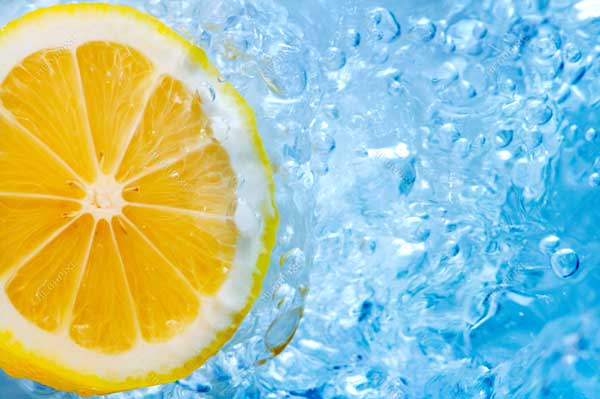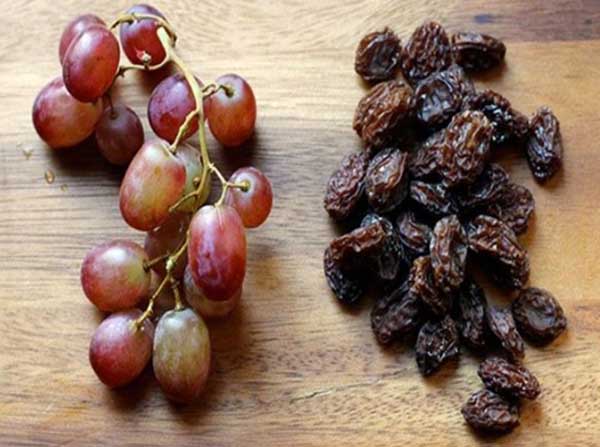
Why You Should Stop to Drink
What is the difference between a grape and a raisin? Water!
Water’s unique properties make it critical for basic cellular functions. Water accounts for up to 60% of your bodyweight and is a vital nutrient to the life of every single cell in your body. Virtually all chemical reactions in life happens in a solution of water.
About two-thirds of the water in your body can be found in your individual cells and the remaining one-third is found in the blood, lymphatic system and space between each cell.
You don’t have to depend on water alone for hydration! Eating 9-11 cups of fresh produce each day helps ensure you are nourished AND well-hydrated.

Here are a few really important reasons for all of us to maintain hydration:
- Water not only keeps your lips & throat moist, it also prevents your mouth from becoming too dry. This could lead to bad breath, a bad taste in your mouth or even cavities.
- When you are dehydrated, your heart must work harder to circulate oxygen-rich blood to your cells. In a dehydrated state, your blood volume is lower and there is less circulating oxygen.
- Dehydration contributes to fatigue. If your heart can’t get adequate oxygen to your cells, doing simple things like climbing stairs or taking an evening walk can be exhausting!
- Being well-hydrated ensures your muscles are able to efficiently remove cellular waste, enhancing overall muscle performance. Plus, staying hydrated helps keep your joints lubricated.
- Consuming enough water helps to keep your skin supple. Dehydrated skin is less elastic and more susceptible to damage.
- Drinking enough water ensures the cellular toxins released are able to be excreted from your body. Dehydration lessens kidney function and may contribute to kidney stones and UTI’s.
- Water is required for your brain to manufacture hormones and neurotransmitters. Being dehydrated can affect your mood and disrupt your sleep.
- Being well hydrated ensures your mucus membranes are functioning at their full potential, contributing to a robust immune system. Well-hydrated mucus membranes are able to trap foreign invaders (like dust, pollen, viruses and bacteria) and remove them from passageways, reducing the risk of infection.
The ebb and flow of hydration

It’s pretty obvious that your body gets the water it needs from what you eat and drink. Let’s take a minute to focus on all the ways hydration levels are depleted.
Without even breaking a sweat, water is used in the production of hormones, neurotransmitters and cellular reproduction. In addition, water is required to breakdown the molecular bonds of the macros in the foods you eat. Your body then reassembles those smaller components into more complex compounds in order to produce the elements needed for cellular repair, enzyme production, protein synthesis and much more.
On top of the water used during microscopic processes, each breath dries our respiratory mucus membranes and releases water vapor into the air. Every single time you blink your eyes, droplets of water-based fluid are released to coat your eyeball.
Staying hydrated is required for proper digestion. Dehydration reduces the amount of saliva available in the mechanical process of chewing, limits the amount of nutrients you are able to absorb from the foods you eat and causes constipation at the end of the line.
Studies have shown that a 1% decrease in body weight from fluid loss can result in adverse symptoms. The longer you go without replenishing this life-giving substance, the more your body suffers. Decreased blood pressure, shrunken and dysfunctional cells and muscle weakness often happen before your thirst mechanism kicks in.
Act now, don’t delay
Having a drink of water before your body tells you you’re thirsty ensures all cellular and metabolic processes continue without disruption and ensures all your elimination pathways are functioning properly.
For adult men, aim for between 3 and 3.5 liters of water each day. Adult females should drink between 1.5 and 2 liters per day. Sedentary folks should focus on the lower end while those more active should drink more – especially if you are spending a significant amount of time in the heat, in a dry climate, in the wind or in an extended period of physical exertion.
Being well-hydrated contributes to happy cells, organs that aren’t overworked, efficient digestion, more supple skin, a robust immune system and better metabolism.
The best way to keep up with your water intake? Find a cup you like to drink out of (you’ll know if that’s the one!) Then measure how much it holds and keep it at arm’s reach. Sip throughout the day. When you hit empty, refill. Now repeat until you’ve reached your goal!

